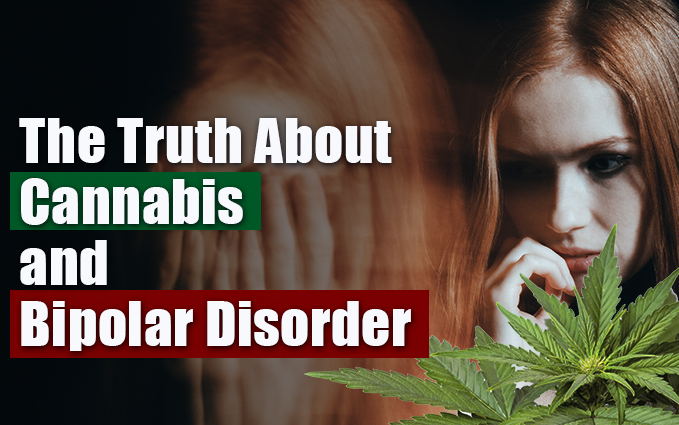
People with bipolar disorder have widely used medical marijuana, though it might lead to poorer clinical outcomes. A previous study claims that 8% – 22% of people with bipolar disorder (BD) use cannabis while 30% – 64% use it for a lifetime. More recent studies try to determine whether marijuana has a perspective as a cure for bipolar disorder or not.
There is a high possibility of getting edibles among many products that contain marijuana in restaurants, especially in Canada where cannabis is legal. With easy access, many people may consume the product more often.
For that reason, bodybuilders, athletes and those looking to increase their testosterone levels while using anabolic steroids should avoid all the time consuming medical marijuana. Consuming both products might lead to complication. Anabolic steroids Canada are found online and you can order your package depending on your need.
What is Bipolar Disorder?
BD is a mental health condition that is well-studied and many individuals struggle to comprehend entirely. It shows in 4 varieties with all the kinds having certain characteristics. The disorder involves phases of mania (abnormally high energy and joy) and depressive episodes which include tremendously low mood, depression, and fatigue.
Though the main treatments for BD are psychotherapy and pharmaceutical drugs, scientists are conducting more research to verify the effects of medical marijuana on BD as discussed below:
Can medical marijuana cause BD?
Though cannabis can on a short-term imitate the signs of some kind of psychiatric illnesses, there is a lack of evidence that its use can lead to chronic brain issues or mental disorders. In people with bipolar, the impacts of medical marijuana depend on the patient’s illness, smoking habits, height and weight among other factors.
The researchers who claim that cannabis is effective in treating BD focus on how cannabinoids affect one’s endocannabinoid system. If a person consumes cannabis, the cannabinoids like THC binds to the endocannabinoid receptors (they are CB1 & CB2) in distinct parts of one’s body and might boost mood stabilizing impacts.
Medical marijuana vs mania and depression related to BD

A study by researchers at a UK university, Lancaster University shows that medical marijuana worsens the symptoms of BD like mania and depression while improving positive emotions. The outcomes were from investigating the happenings of 24 BD patients under treatment with medical marijuana. The BD patients took the treatment at least 3 times a week.
Apart from cannabis alleviating tiredness and headache, some claim that it can also help with depression. This is contrary to the above study. Some of the strains can help with depression better while others moderately help with despair. However, all strains help treat depression.
It is challenging to choose cannabis strain, especially if you live in a country that has not legalized medical marijuana seeds. Fortunately, people living in Canada have the freedom to choose any stain as cannabis is legal and farmers grow marijuana plants like any other agricultural crop. It is easier for the farmer to grow the plants as long as they consider crucial elements to growing healthy marijuana plants.
Another study shows that patients with BD who reduce or stop using marijuana following experiencing psychotic episode for the first time had most improvement in signs at the first year than those who have been using cannabis or people who have never used it. Nonetheless, using cannabis on a long-term basis can lead to negative effects on a BD patient’s long-term clinical results.
THC vs CBD

Cannabis effect on bipolar disorder patients varies in regard to the consumption method. The type of cannabis also may affect the scientific findings due to the mistakes in uniformity from one study to the other. Therefore, bipolar patients smoking cannabis concentrates having very high THC levels can experience more unfavorable mood responses than patients smoking CBD rich concentrates.
THC incites sharp fear and anxiety in a number of consumers whereas CBD helps in mediating the unconstructive psychotropic effects. Also, it is crucial to recognize the kind of cannabis strain under study; indicia, sativa or hybrid because each produces different outcomes.
Conclusion
The above discussion clearly shows that the relationship between medical marijuana and bipolar disorder is debatable. Some studies have shown the potential use of cannabis in treating the disorder whereas some researchers found no evidence supporting the case.
There is a possibility that some people might respond differently to cannabis treatment than others. Therefore, in a larger sample size; the relationship between medical marijuana and BD might be more complex thus more thorough research is crucial.
